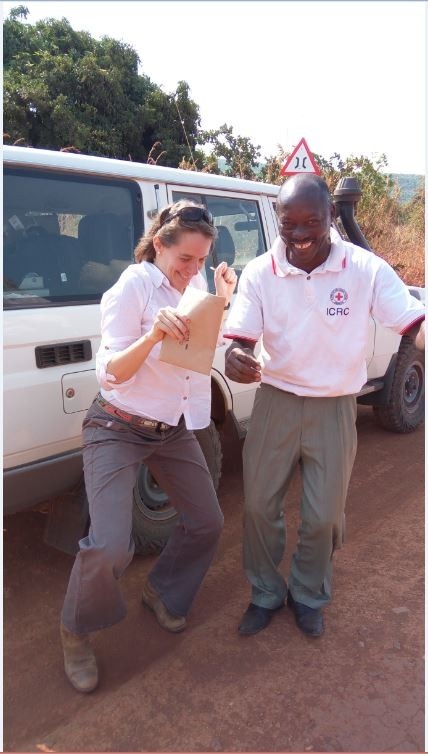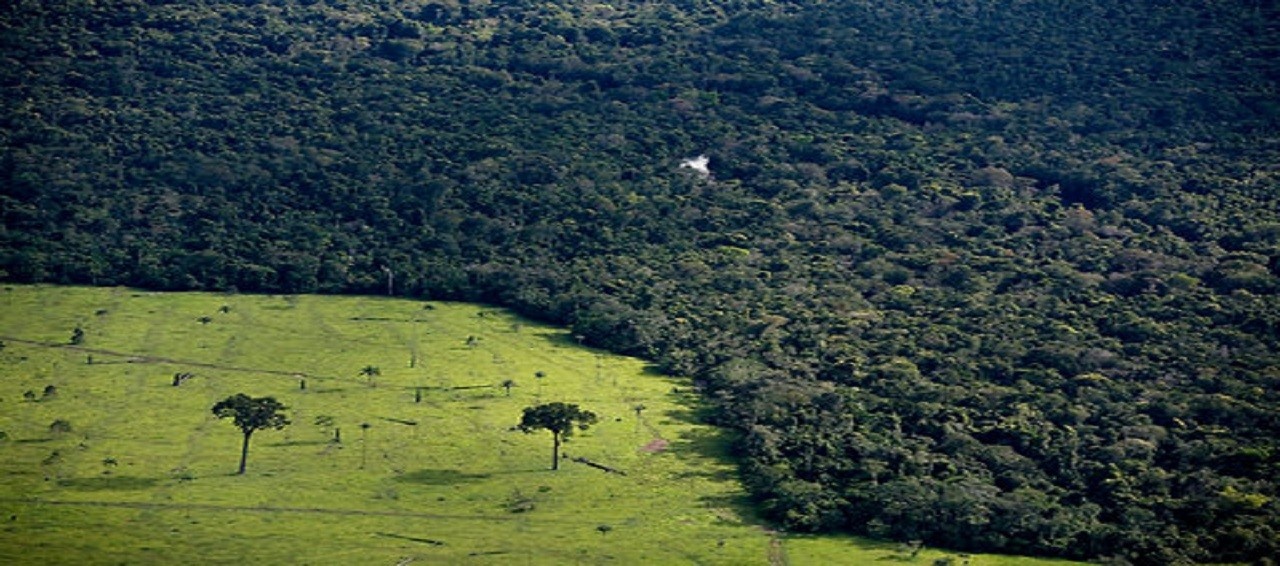Marie‑Geneviève Nightingale
BA IDS 2002
International Committee of the Red Cross (Algeria)

On a plane headed to Goma, with the help of Marie-Geneviève Nightingale and the ICRC, 40 children who were just demobilized from armed groups were all going home.
The atmosphere on the plane was electric. En route to Goma, a city in the eastern Democratic Republic of the Congo (DRC), the aircraft was filled with around 40 children who were just demobilized from armed groups. Some had been gone for six months, others up to seven years.
With the help of Marie-Genevi√®ve Nightingale (BA IDS 2002) and her team at the¬Ý(ICRC), the children‚Äôs families were located and their safe return was arranged. They were all going home.
‚ÄúIt was the most amazing experience,‚Äù says Nightingale. ‚ÄúIt was the fruit of the labour of a lot of people.‚Äù¬Ý
Since 2010, Nightingale has worked as a protection delegate for the ICRC. Currently based in Algiers, Algeria, she has previously worked in Kuwait, Rwanda, the DRC and Kenya.
It is morally satisfying to engage with communities and collectively work toward a solution to make things better.
While Nightingale says her job description changes from one mission to another, a protection delegate does a handful of things: provide protection and assistance services to civilian populations, help victims of armed conflict or other violent situations and restore family links.
Nightingale works closely with the¬Ýand government to ‚Äúhelp them realize their objectives in terms of meeting the needs of vulnerable people within their society.‚Äù
Spending most of her time listening and asking questions, Nightingale says it is morally satisfying to engage with communities and collectively work toward a solution to make things better.
“My most favourite thing about my job is when I spend my day working with people or communities in a collaborative manner,” says Nightingale.
“It’s exciting, it’s interesting, it’s engaging.”
Originally from Montr√©al, Nightingale moved to Halifax in 1999 to study International Development Studies at ∫⁄¡œ≥‘πœÕ¯ and contemporary studies at the University of King‚Äôs College. Nightingale graduated with her bachelor‚Äôs degree in 2002.
My most favourite thing about my job is when I spend my day working with people or communities in a collaborative manner
“It’s a very dynamic place to be,” says Nightingale. “There was a lot of positive energy and there were a lot of possibilities and opportunities to meet new people and learn new stuff.”
Nightingale’s biggest takeaway from her degree: how challenging and difficult development can be.
“It’s almost like a mine field,” says Nightingale. “So many things can go wrong.”
Nightingale credits the program for reviewing examples of challenges and failures in development, allowing students to learn from previous mistakes.
‚ÄúIt doesn‚Äôt save you from mistakes of your own, but at least you are more aware of what the possible pitfalls could be,‚Äù says Nightingale.¬Ý
Nightingale says her degree in international development studies taught her the importance of humility and awareness.
“You have to tread very softly,” says Nightingale. “The last thing you want to do is romp around in your own country or someone else’s country and be like, ‘Okay guys, we’re going to figure this out, we are going to fix this.’”
Nightingale‚Äôs advice to international development students: stay humble, get as much field experience as you can and learn a language.¬Ý
“Learn it really well,” she says. “Your comprehension and, therefore, your contribution to any given context increases exponentially when you understand what’s being said.”
You have to tread very softly. The last thing you want to do is romp around in your own country or someone else’s country and be like, ‘Okay guys, we’re going to figure this out, we are going to fix this.’
